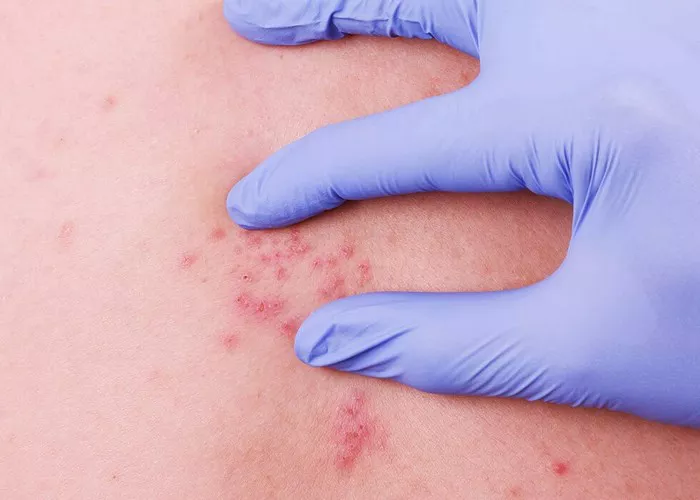Psoriasis is a chronic skin condition characterized by patches of red, scaly skin that can be itchy and uncomfortable. Among the various types of psoriasis, one distinct form is known as alphosyl psoriasis. This article delves into what alphosyl psoriasis is, its symptoms, available treatments, and strategies for managing this condition effectively.
What is Alphosyl Psoriasis?
Alphosyl psoriasis, also referred to as plaque psoriasis, is the most common type of psoriasis. It presents as raised, red patches covered with a silvery white buildup of dead skin cells or scales. These patches can appear anywhere on the body, but are commonly found on the elbows, knees, scalp, and lower back.
The exact cause of alphosyl psoriasis is not fully understood, but it is believed to be related to an abnormal immune response where the immune system mistakenly targets healthy skin cells. This leads to rapid turnover of skin cells, resulting in the characteristic thickened patches seen in psoriasis.
Symptoms of Alphosyl Psoriasis
Alphosyl psoriasis can vary in severity from mild, with small patches of scaling, to severe, where large areas of skin are affected. The symptoms of alphosyl psoriasis include:
- Red Patches of Skin: Raised, inflamed areas of skin covered with silvery scales.
- Itching and Discomfort: The affected areas can be itchy, sore, or tender.
- Dry, Cracked Skin: The skin may crack and bleed, especially in areas of joint movement.
- Thickened Nails: Psoriasis can also affect the fingernails and toenails, causing them to become thickened, pitted, or ridged.
- Scalp Involvement: Alphosyl psoriasis often affects the scalp, leading to flaking and scaling of the skin (scalp psoriasis).
Diagnosis and Assessment
Diagnosing alphosyl psoriasis is usually based on the appearance of the skin lesions and a thorough medical history. In some cases, a biopsy may be performed to confirm the diagnosis. The severity of psoriasis can be assessed using various tools that evaluate the extent of skin involvement, the impact on quality of life, and other factors.
Treatment Options for Alphosyl Psoriasis
While there is no cure for alphosyl psoriasis, several treatment options can help manage the symptoms and improve the quality of life for individuals with this condition. Treatment choices may vary depending on the severity of the psoriasis, the location of the lesions, and the individual’s response to therapy. Common treatments include:
1. Topical Treatments: Creams, ointments, or lotions containing corticosteroids, vitamin D analogs, or retinoids can be applied directly to the affected skin to reduce inflammation and scaling.
2. Phototherapy (Light Therapy): This involves exposing the skin to controlled amounts of natural or artificial ultraviolet light. Phototherapy can slow down the excessive skin cell growth associated with psoriasis.
3. Systemic Medications: For more severe cases of alphosyl psoriasis, oral or injectable medications that target the immune system (such as methotrexate, cyclosporine, or biologics) may be prescribed to suppress the immune response.
4. Lifestyle Measures: Managing stress, avoiding triggers (such as certain medications, infections, or injuries), and maintaining a healthy lifestyle (including regular exercise and a balanced diet) can help reduce the frequency and severity of psoriasis flare-ups.
Managing Alphosyl Psoriasis Effectively
In addition to medical treatments, there are several strategies individuals with alphosyl psoriasis can adopt to better manage their condition:
1. Moisturize Regularly: Keeping the skin well-hydrated can help reduce dryness and itching.
2. Avoid Irritants: Minimize exposure to harsh soaps, detergents, and chemicals that can worsen psoriasis symptoms.
3. Use Gentle Skin Care Products: Opt for mild, fragrance-free skin care products that are less likely to irritate the skin.
4. Monitor and Avoid Triggers: Identify and avoid factors that trigger psoriasis flare-ups, such as stress, infections, or certain medications.
5. Seek Emotional Support: Psoriasis can have a significant impact on emotional well-being. Connecting with support groups or mental health professionals can be beneficial.
Conclusion
Alphosyl psoriasis is a chronic skin condition that requires ongoing management. While there is no one-size-fits-all approach to treating psoriasis, a combination of medical therapies, lifestyle modifications, and self-care strategies can help individuals with this condition lead fulfilling lives with reduced symptoms and improved skin health. If you suspect you have alphosyl psoriasis or are struggling with psoriasis symptoms, consult a dermatologist or healthcare provider for an accurate diagnosis and personalized treatment plan.
Related Topics:


























